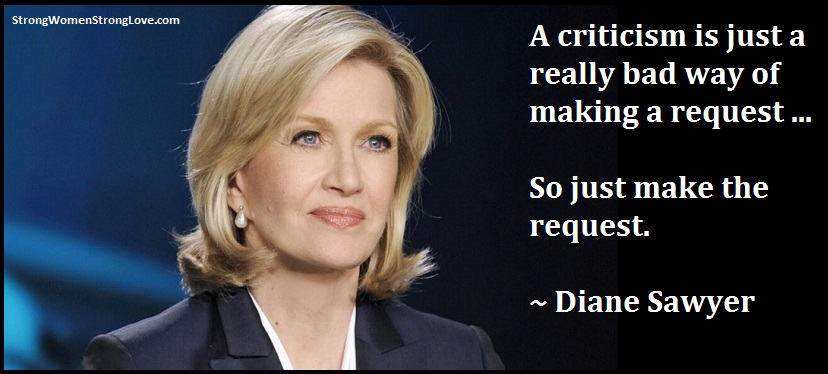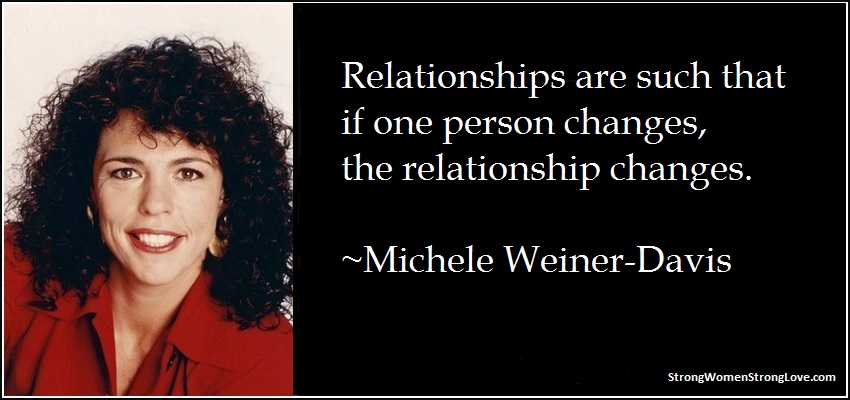by Strong Women Strong Love | Apr 16, 2017 | Persistent Pressures, Poisonous Patterns |

Even amid all the political bickering these days, Facebook can be a pretty romantic place. We’ve all read stories of people who knew each other in high school and even earlier reconnecting on the site and finding lasting relationships. When the reunited lovebirds are single before finding each other again, these stories make our hearts flutter. But if you’re married, talking to your ex on Facebook can be a little more complicated.
Social Media and Emotional Affairs
If you’re tempted to look up an old love, ask yourself what’s motivating you. Maybe your marriage is happy and you’d just like to know how your ex’s life turned out and wish him happy birthday every year. But if your marriage is struggling and you’re thinking about how perfect your old love was, now isn’t the time for a trip down memory lane with him.
Talking to your ex can put you at risk for an emotional affair — especially when you’re spending your energy reconnecting with your ex on social media, instead of with your husband in real life. It’s easy to idealize your ex on Facebook because we tend to present only the most positive parts of our lives on social medica. And when you’re typing on a screen, instead of talking face to face, you can lose your sense of what crosses the line from friendship into something more.
A piece of advice I gave in my blog article about emotional affairs also applies here. If you wouldn’t want your husband seeing the Facebook messages between you and your ex, your contact with your ex might be bad for your marriage. Now I’m not saying that your social media accounts have to be a completely open book for your husband. Or that his should be for you, for that matter. You both deserve some privacy and trust. But that trust comes with a responsibility to act in a way that doesn’t threaten your marriage.
Cultivate Intimacy at Home, Not Online
Another red flag? Talking to your ex about things you aren’t discussing with your husband. Your husband can’t be, and shouldn’t be, your only emotional outlet. But if you find it easier to be emotionally intimate with your ex on Facebook than with your husband, that’s a sign to focus on your marriage and your real-life social network, not your old acquaintance.
To head off any issues with social media use, I recommend that you and your husband be a part of each other’s social networks. After all, it’s easier to drift into trouble with your ex on Facebook if your husband is not on the network and doesn’t see you interacting with him. Being proactive about keeping your marriage strong also lessens any online temptations. You’ll find lots of tools to work on your relationship in my book Strong Women, Strong Love. Of course, you can also follow Strong Women Strong Love on Facebook.
by Strong Women Strong Love | Feb 28, 2017 | Parenthood, Poisonous Patterns |

It’s a crossroads that countless couples have encountered: Their marriage has become unhappy and unsatisfying. But they fear hurting their children by divorcing.
Should you stay in your marriage for the kids, or end it? Both choices are painful. Which one is better?
Each couple has to ultimately decide what’s right for them and their family. But I do believe there’s a wise way couples can approach this life-altering decision.
A caveat before I go on: This advice is for people in unhappy marriages, not relationships that are marked by abuse and aggression. If you’re in a situation like this, please seek professional help.
Have You Given Your Marriage a Real Chance?
For most unhappy couples, the decision about ending a marriage when kids are involved isn’t so clear-cut. You may long for an escape from your marriage, but you also know the stakes are high for both you and your children. A divorce can complicate all your lives for years. And no matter what you decide, you and your husband will still have to co-parent.
Because divorce is a serious decision, it’s not one that you should rush into. Especially since some studies have shown that a good percentage of people who divorce end up regretting their decision.
That’s why my advice to most couples on the brink is to make sure that they’ve done everything they can to save their marriage before calling it quits.
Using the Research on Marriage to Help You
If you’re intent on working on your marriage, there’s very good news. Research has given us clear insight about what makes marriages succeed or fail. If you are determined to give your relationship a chance, you can be smart and focused in your approach. If you’re both willing to put in the work — reading books, getting therapy, going to marriage workshops — you have a better chance than ever of salvaging your relationship.
Have you educated yourself about what makes a marriage work? Do you know about the four horsemen and the best predictor of divorce? If you don’t know what I’m talking about, then you have some work to do.
As a parent, if you do divorce, you want to be able to honestly tell your kids that you did everything you could to try to make the marriage work.
Sadly, not every marriage can be rescued. If that’s the case for you and your husband, you’ll at least have the peace of knowing you were thoughtful in making the decision to divorce, and that it is really the better option for you. You’ll move forward with fewer “what ifs” and regrets. And the efforts you put in should help the two of you with your post-divorce relationship as co-parents to your kids.
If you are looking for ways to work on your marriage, I want to point you toward my book Strong Women, Strong Love. I wrote it to help busy couples nurture their marriage amid their stressed and demanding lives. If you’re ready to seek couples therapy, seek recommendations from people you trust, consult your insurer’s director of providers or browse Psychology Today‘s listing of therapists in your area.
by Strong Women Strong Love | Feb 16, 2017 | Poisonous Patterns |

You have a great friend at the office. You enjoy working with him and sometimes you even grab lunch together. He’s funny, considerate and easy to talk to. So easy to talk to, in fact, that you find yourself sharing things with him that you don’t share with your husband.
You’re in dangerous territory.
Emotional infidelity can be a stepping stone to a full-blown affair. And even if it doesn’t turn into one, it can still damage your marriage.
When Does a Friendship Cross the Line into an Emotional Affair?
It’s fine, of course, to have friends outside your marriage, but it’s important to know the difference between a friendship and an emotional affair.
One of the first signs you might be engaging in emotional infidelity is that you’re talking with your friend about things you don’t discuss with your husband. The following questions can also help you determine whether you might be crossing the line. Ask yourself:
- Would you talk with your friend about the same things if your husband were present?
- If your husband doesn’t know your friend, would you feel comfortable introducing them? If not, why not?
- Can you honestly say that you don’t have any feelings other than friendship for this person?
- Are the two of you communicating secretly, either on the phone or in person? Why?
Worried that you might be drifting into an emotional affair? You can take a quiz on the website of Dr. Shirley Glass, an expert on the topic, to see if your friendship has become an emotional affair : Just Friends or Emotional Affair Quiz.
The Cost of Emotional Infidelity
One common reason that people commit emotional infidelity is because they feel an emotional disconnection from their spouse. Addressing that sense of loneliness or estrangement is hard work. It can seem easier to avoid issues between you and your husband and distract yourself with attention from someone outside your marriage — all the while rationalizing that it “doesn’t count” because it’s not physical.
But it does count. An emotional affair can be a slippery slope to a physical affair. But even if the relationship never becomes physical, it still harms your marriage because of the secrecy and betrayal that is often involved.
People who find out about their spouse’s emotional affair may feel just as devastated as those who find out their partner is having a physical affair. In fact, some would even argue that emotional betrayal is worse than physical infidelity. Sometimes it can hurt more to find out your spouse is physically present, but deeply emotionally connected to someone else.
Putting the Brakes on an Emotional Affair
Lots of aspects of our lives today make us vulnerable to emotional affairs. Working long hours can lead to more closeness with your “work husband” than your real husband. And Facebook puts old flames at our fingertips.
If you are having an emotional affair, consider it a signal that you need to put your marriage front and center again. Ask yourself what’s driving you to look outside of your relationship to get your needs met, and see if you can address that problem directly. If it’s that you don’t feel good about yourself, get some counseling and work on yourself. If you’ve become resentful of your husband and feel distant from him, work on your marriage.
You can find more advice on the factors that lead to infidelity in my book Strong Women, Strong Love. Don’t wait to address this critical issue in your marriage.
by Strong Women Strong Love | Oct 16, 2016 | Persistent Pressures, Poisonous Patterns |

How do you and your spouse reconnect at the end of the day? Are you eager to see each other, or are you tense and afraid, not sure what kind of reception you’ll get?
Some people steel themselves for a daily litany of complaints from their spouse. Maybe they’re the target themselves, or they just have to listen to a lot of vitriol about their spouse’s job. Others might dread discovering the latest thing their spouse has messed up: He probably won’t bring in the trash can from outside. And, I bet he forgot to pay that bill I reminded him about AGAIN this morning!
Those first few minutes when you see each other again at the end of the workday set the tone for your whole evening. If you’re feeling trepidation, instead of anticipation, it’s worthwhile to put some energy into making this time of day more positive.
What Goes Wrong after Work
The circumstances of our busy lives set us up to be snippy and even confrontational as we end our workday and start our evening at home. As I write in my book Strong Women, Strong Love, it’s not your imagination: Our lives really are getting more stressful and demanding.
And we have less of a buffer between our family life and our life outside the home. Commuting has never been fun, but at least it used to serve as kind of a decompression zone between home and work, where we were free of the demands of both. Today, if you use mass transit or carpool, you’re probably trying to squeeze in a few work tasks during your commute. If you drive yourself, chances are you’re answering calls from the office or checking emails and texts at traffic lights.
That all sets you up to still be caught up in the day’s dramas and demands when you get home each night. And it makes harder to really “see” your spouse and show up for each other.
Set the Tone for the Evening
Here’s some advice for getting the evening off to a good start. Concentrate on making the first moment that you see your husband after work a really positive one. Just for that moment, put aside any resentment and stress that are lingering from the day and focus on initiating a connection with him. This can make a real difference in how the two of you interact the rest of the evening. It might feel like extra effort at first, but it will quickly become a habit.
Making this shift is a lot easier if you practice some self-care before you get home. Stress makes us defensive and zaps our communication skills, so think about how you can use your own commute to calm and replenish yourself after your day. You could practice breathing exercises or swap out talk radio for music that makes you happy. You may be able to set your phone so that it automatically disables calling or texting while you’re driving.
Coming home and reconnecting with your husband can be something to look forward to instead of dreading. How can you be more intentional about your post-work time this week?
by Strong Women Strong Love | Oct 3, 2016 | Books, Poisonous Patterns, Understanding Men |

A criticism is just a really bad way of making a request … so just make the request. ~Diane Sawyer
There’s a great deal of wisdom in that quote from journalist Diane Sawyer. And I’m betting that wisdom played a role in her happy, 26-year marriage with director Mike Nichols.
As a psychologist, I’ve seen many relationships where the opposite is going on. Couples get stuck in a frustrating — and stereotypical — pattern. The wife points out something that’s wrong, hoping her husband will address it. He doesn’t. So, she complains some more. He withdraws, telling her to back off. Met such a reaction, her initial complaints sometimes escalate into full-blown criticism: “I don’t know why I’m even married to you.You never do anything around here!”
If this sounds familiar, don’t beat yourself up. The fact that you’re being upfront and asking for what you need in your marriage is great. Keep talking about what’s on your mind, but try the communications tweak I’m about to show you. I think you’ll see better results.
How Men Process Complaints
Before we talk about how to be more effective in your communication with your husband, I think it would be helpful to understand why you’re getting a negative reaction from your spouse in the first place.
For the most part with men, pointing out what’s wrong usually will not get you anywhere, no matter how often or loudly you say it. (Women may not be so receptive either!)
Think about your goal when you complain to your husband about something he’s doing (or not doing!). You probably just want him to change a certain behavior or deal with a particular situation, right?
But because of the way most men are raised, chances are he’s interpreting what you say in ways you don’t intend. Men grow up hearing they must be competent, independent, and do a good job of taking care of their loved ones. They’re taught not to ask for help, so they may not understand why you keep asking them for little things. Because of these messages, men will often react to complaints with irritation or defensiveness, jumping to the incorrect conclusion that you’re just trying to tell them they’re inadequate or failing.
An example: You say, “I’m sick of always being the one who plans dinner. Why can’t you do it sometimes?” In your mind, this remark is about meal-planning — nothing more. But what he might hear is, “You let me down. You’re failing as a husband.”
Another aspect of how men often get socialized in the U.S. comes into play in how they react to complaints. Renowned communication expert Dr. Deborah Tannen’s research shows that in general women communicate to connect, while men typically talk to establish their status. Speaking broadly, men tend to pay much more attention to hierarchy than we do as women.
For example, you tell your spouse, “Honey, the trash can is overflowing again!” You just want him to take care of the trash. That’s it. You’re not trying to establish yourself as the dominant one in the relationship, right? In fact, you usually assume that the two of you are co-equal members of the same team, and that nothing you say changes that. However, he may be very sensitive to any phrasing that could seem like you’re trying to “boss” him around or convey that you’re better than him. If he thinks that’s what’s happening, he’s much more likely to be defensive and will get to the trash when he feels like it, not necessarily when you ask.
Turn Complaints Into Requests
Like Diane Sawyer, I believe that a direct request beats pointing out what’s not working any day. And there’s a way to make requests that spurs your husband to action and builds positive feelings in your marriage.
What’s important is how you phrase the request.
Right now, you might be feeling a little frustrated. Maybe you’re wondering why you have to do all this work to be heard. Or you’re questioning why he doesn’t just address your complaints so you can both quit worrying about them.
I understand. Things would be a whole lot easier if he just “got it.” But waiting for that to happen isn’t the best way to get your needs met, so focus on how you can be most effective in your relationship.
I suggest that you make a direct request for what you need, but make sure you include the following information:
- What you need from your husband and
- How his action will benefit you.
Instead of feeling like he’s failing you, or that you’re bossing him around, he’ll feel that he’s succeeding at his favorite role: the competent guy who makes your life better.
Let’s go back to the earlier example of a typical complaint:
“I’m sick of always being the one who plans dinner. Why can’t you do it sometimes?”
You could voice the same need in a very different way:
“Honey, I know it’s worked for us for a long time to have me be the one who takes care of dinner. But since I changed jobs, this has gotten a lot harder for me. You’d really be helping to get my stress level down if we came up with a plan to share dinner duty.”
Do you see how your husband might be more receptive to the request vs. the complaint? Don’t forget to voice appreciation if your husband responds positively to your request, as you would with anyone else.
This week, think about something that you frequently complain about in your marriage and try this communication technique instead. Let me know how it goes!
If you and your husband are interested in learning more about gender and communication, check out Deborah Tannen’s books, You Just Don’t Understand: Men and Women in Communication or That’s Not What I Meant, You’ll also find many more ideas about understanding and connecting with your husband in my book Strong Women, Strong Love.
by Strong Women Strong Love | Aug 1, 2016 | Passionate Partnership, Poisonous Patterns |

I recently had the opportunity to hear author and marriage therapist Michele Weiner-Davis speak.
Weiner-Davis is the author of Divorce Busting, among other books. As you can tell from that book title, the heart of her approach is about helping couples avoid divorce if at all possible.
I think her work is interesting and useful. One of Weiner-Davis’ resources that I’ve been sharing with my clients is The Last Resort Technique. It’s something you should read immediately if you feel that your marriage is in serious jeopardy. Weiner-Davis defines this as your husband filing for or definitively asking for divorce, being separated from each other, or still living together, but with little to do with each other.
The steps in the Last Resort checklist align with advice and strategies I’ve written about here in this blog and in my book, Strong Women, Strong Love.
Call off the Chase
As a first step to saving your marriage, Weiner-Davis advises “stop the chase.” That means no calls, buying gifts, etc.
In a past blog post on handling a separation, I wrote about why this strategy works:
If your husband does actually leave the house, don’t pressure him to come back. Allow him to experience the reality of what divorce from you would mean. … Give him space to understand your importance in his life. It’s possible he’s not interested in reconciliation and will eventually want a divorce. It’s also possible that if he truly experiences a separation, he’ll eventually start missing you and the life you have built together.
I’ve also written about how research has shown that a pattern of chasing isn’t good for marriages:
In technical terms, the pattern in which one spouse wants to confront the issue and the other withdraws from such a discussion is the pursuer/distancer pattern. E. Mavis Hetherington’s landmark study of 1,400 divorced individuals found that couples who routinely related this way had the highest risk of ending up divorced.
Rediscover Yourself
The second step of the Last Resort Technique is “Get a life.” Feeling depressed and desperate when your marriage is on the brink is natural, Weiner-Davis writes. But, she says, it’s important to “remember who you really are.” In other words, you’re much more than your response to the current crisis in your life. You’re a whole person, not the “jilted wife” or whatever demeaning label you might be applying to yourself.
Weiner-Davis recommends doing things to get back in touch with yourself, such as deepening your faith, reconnecting with old friends or pursuing a new interest or hobby.
Earlier this year, I wrote about the importance of maintaining a strong sense of self no matter what’s going on in your marriage:
It’s about engaging in what truly makes you feel alive, showing up as yourself, and drawing a line when others don’t respect you. It’s being playful, confident, and engaged in your own life. As therapist Esther Perel has so eloquently noted, distance, space, and mystery stoke the fires of attraction. Be yourself, enjoy doing your own thing, and you’ll amp up the attraction in your relationship. If you’re not convinced, ask yourself how attracted you would be to your husband if he was really needy and had no life outside you! Not much, I bet.
Weiner-Davis makes no guarantees that the Last Resort Technique will save your marriage, but she writes that “it works often enough for you to be eager to give it a shot.” And, she adds, “even if your marriage doesn’t improve … your mental health will.”
If you’re interested in learning more about Michele Weiner-Davis’ Last Resort Technique, consider her new online course, The Last Resort Technique.







